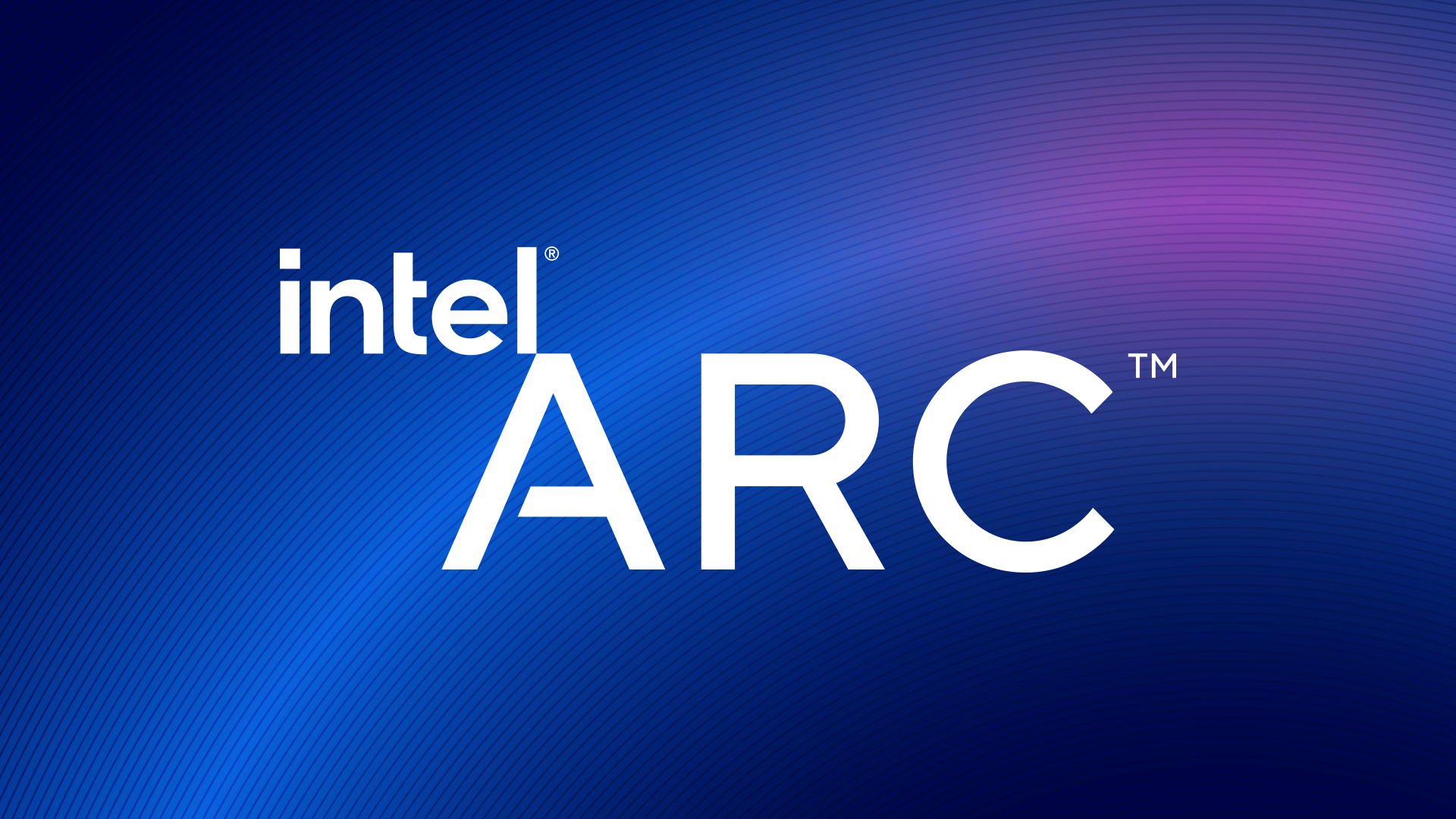Intel's Arc GPU could defeat the Nvidia RTX 3070 and AMD RX 6700 XT
Player three has entered the ring

Sign up for breaking news, reviews, opinion, top tech deals, and more.
You are now subscribed
Your newsletter sign-up was successful
If you're sick of what currently feels like a two-party system for graphics cards then Intel has some exciting news – its upcoming discrete GPU dubbed Intel Arc might give AMD's RX 6700 XT and the Nvidia GeForce RTX 3070 a run for their money.
Arc is the latest flagship GPU from Intel, previously codenamed 'Alchemist' (with future products planned including 'Battlemage', 'Celestial' and 'Druid') and as reported last week, is anticipated to launch in Q1 2022. The initial release will be based on Intel's Xe-HPG microarchitecture, which helps the product more efficiently compute advanced graphical features like ray tracing, and should give Intel a firm leg up in the PC gaming space.
- Intel Xe graphics cards release date, specs, news and rumors
- AMD vs Intel: which chipmaker does processors better?
- AMD vs Nvidia: who makes the best graphics cards?
A new challenger appears
A video showcasing features that include mesh shading, real-time ray tracing and AI supersampling (akin to Nvidia's DLSS or AMD's FidelityFX) for incredibly detailed pictures was revealed during the product announcement, detailing that 4K video upscaling will also be supported. While the presentation and video showcase was impressive enough, it turns out that the theoretical performance of Intel's upcoming GPU might outpace the entry-level offerings from both Team Red and Team Green.
Intel's ARC Xe-HPG Alchemist graphics card has a higher core count (4096) than both the AMD RX 6700 and RX 6800. The Nvidia GeForce RTX 3070 has a higher core count by comparison, but this anticipated performance is nothing to be sniffed at – especially if Intel can get the pricing right.
While we expect Arc will be less capable at raytracing due to having lower ray tracing units than the competition, Intel's AI assistance in supersampling technologies should cause AMD and Nvidia some concern. Its XeSS technology has proven itself as a force to be reckoned with, giving Intel's Alchemist a good chance at blowing its rivals upscaling out of the water by comparison. A small game cache is also anticipated to feature on Team Blue's GPUs, equipped with 16GB of VRAM (twice as much as the RTX 3070 and RTX 3070 Ti).
Given the GPU isn't expected to hit the market for several months, we won't know how much of a threat Intel's latest foray into graphics cards will pose to the existing GPU giants, so keep expectations low for now until some official benchmarks start to emerge.
Analysis: Intel is late to the party, but a welcome new addition

The current rumors claim Intel's Arc graphics card could be officially revealed during CES 2022, potentially launching around the same time. That feels a little way off, but with Nvidia anticipating that hardware shortages are going to continue into 2022, another GPU provider entering the market is worth the wait
Sign up for breaking news, reviews, opinion, top tech deals, and more.
Stock shortages and issues with available stock being snatched up by cryptominers and scalpers have been a recurring issue since the launch of Nvidia Ampere and AMD's RDNA 2 series. It's unlikely that Intel's Arc will solve any of these problems overnight, if at all, but having increased variety on the market can only be positive when the current offerings are limited to just two companies.
With any luck, Intel can cause enough disruption on the market to help with the current shortages. Failing that, if pricing is revealed to be competitive then consumers simply have more choice when selecting their gaming systems, especially with the currently theorized performance compared to existing hardware.
The price of the current generation of graphics cards has been a contentious talking point for customers, with remarks being made regarding entry-level GPUs like the GeForce RTX 3060 and the AMD RX 6600 XT being overpriced, especially in the current market of over-inflation.
And of course, we don't yet know if any anti-mining features will be present with the Alchemist GPU or if Intel is preparing itself to combat bots when the products do hit the shelves. There are a lot of eyes on Intel for this launch, so if it can pull this off successfully then we soon won't be thinking of the gaming GPU market as just Nvidia and AMD's playground anymore.
- Best processor: the best CPUs from Intel and AMD

Jess is a former TechRadar Computing writer, where she covered all aspects of Mac and PC hardware, including PC gaming and peripherals. She has been interviewed as an industry expert for the BBC, and while her educational background was in prosthetics and model-making, her true love is in tech and she has built numerous desktop computers over the last 10 years for gaming and content creation. Jess is now a journalist at The Verge.